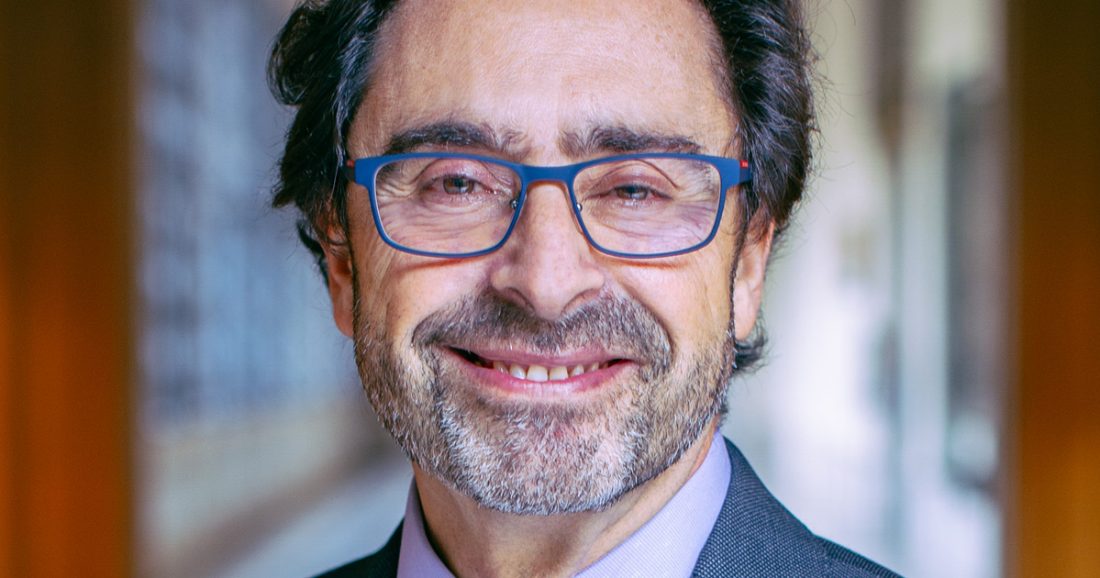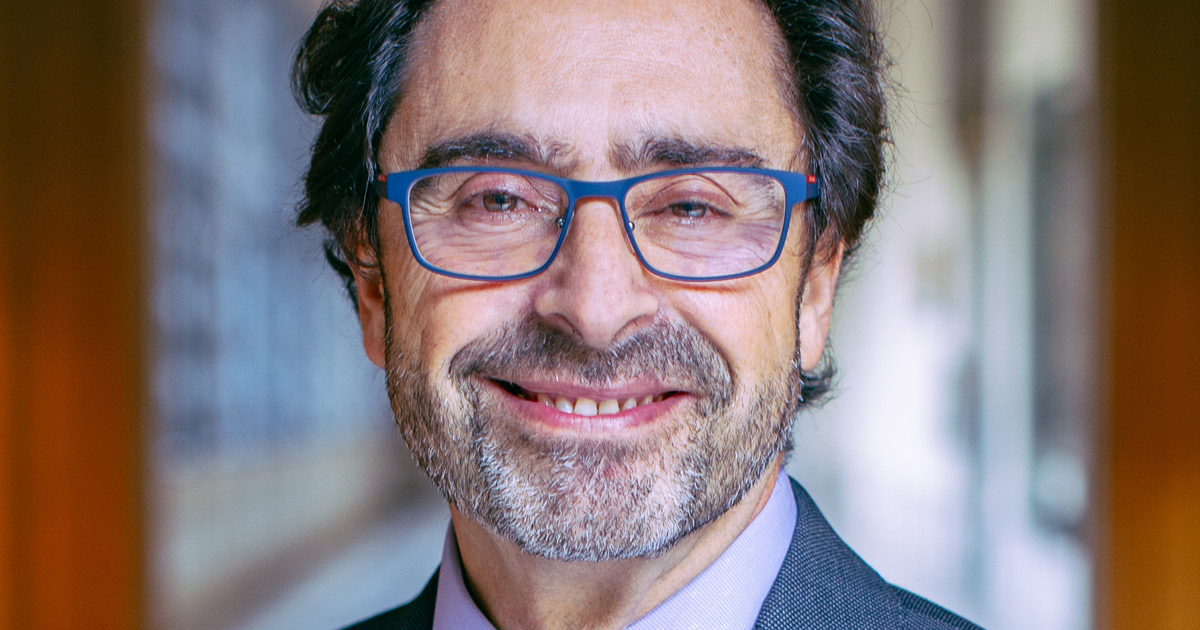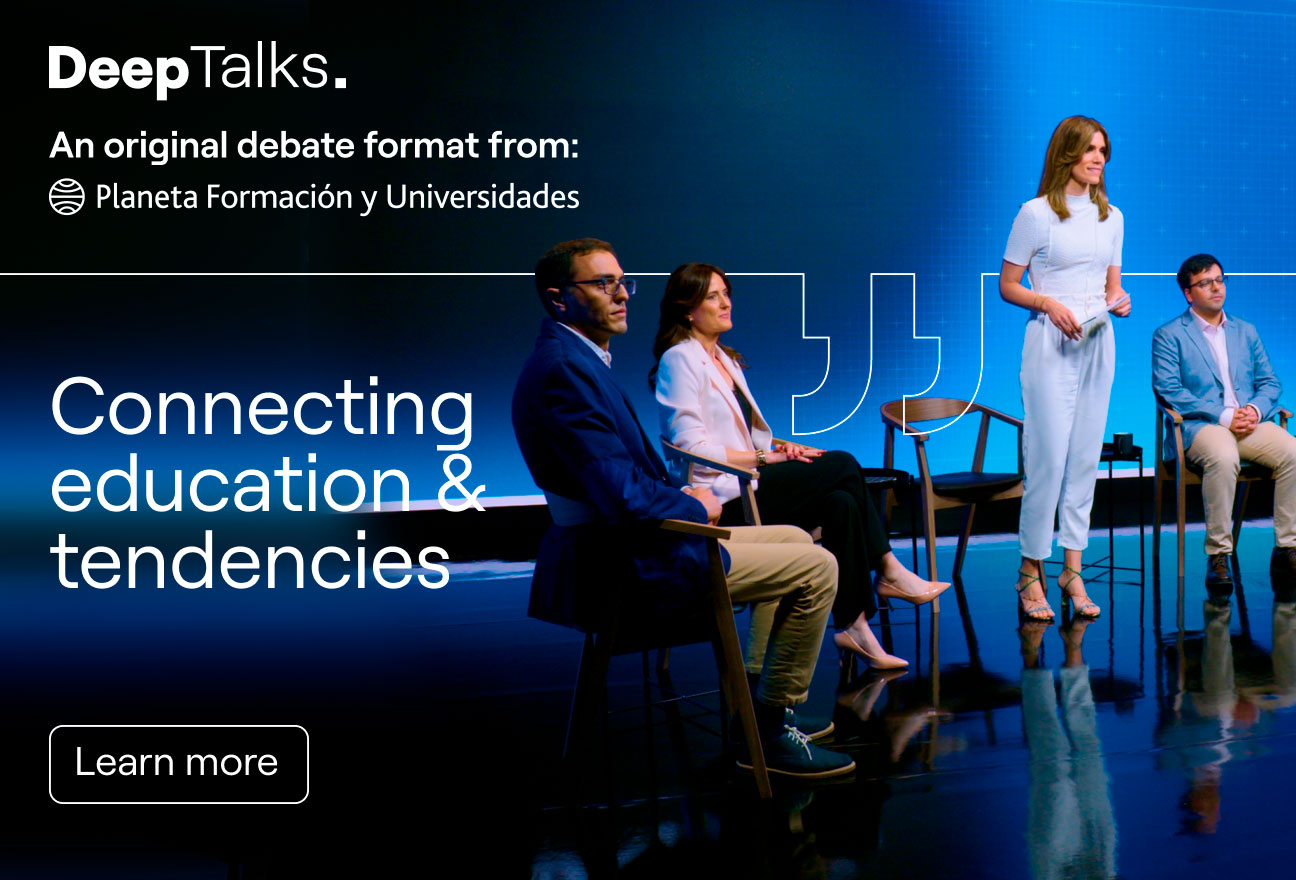Stroll along Gran Via de les Corts Catalanes, the majestic, tree-lined boulevard that spears diagonally through Barcelona’s bustling core, and it’s easy to become seduced by the procession of architectural gifts it offers up – from imperious Venetian towers to grandiose modernist apartment buildings designed by Antoni Gaudí, the maverick behind the emblematic Sagrada Familia church.
Even so, said buildings can’t help but bow in respect to the 19th century neo-Romanesque gem that squats at the junction with Carrer de Balmes, not just out of deference to its visual splendor but also its deeper impact in shaping Spanish and regional Catalan society.
“It’s impossible to describe the history of Barcelona without the history of the university,” says Joan Guàrdia, Rector of the establishment that bears the city’s name, now celebrating 575 years of existence.
“And at the same time, it’s impossible to describe the history of the university without the history of Barcelona.”
Indeed, in 1936, when the tanks of fascist dictator General Francisco Franco rolled into the capital of Catalonia – one of 17 autonomous communities that make up Spain – with the aim of trampling not just buildings but all traces of regional Catalan language and culture, the University of Barcelona served as a hotbed of resistance, its professors and students rising up against censorship and repression. Barcelona eventually fell to Franco’s Nationalist forces in 1939.
Guàrdia explains that the impact of this period is still felt today, with a new constitution approved less than 50 years ago, in a 1978 referendum.
“It’s important to remember that in my country the democratic parliament is very recent,” says Guàrdia, who was born in the late 1950s, smack-bang in the middle of dictatorial rule.
Epicenter of change
If it’s true that the concept of Europe, and ergo the European Union, is currently having an existential crisis in the wake of a new global order, then it’s certainly not a sentiment felt within the university’s ornate corridors, or by Guàrdia himself. Here is an institution, and a man, ready to embrace rather than reject its allies.
“From this idea, in the last 50 years, the University of Barcelona has become the principal point of reference in defining political movements, social movements, economic movements, and, in the last 25 years, scientific movements,” Guàrdia says.
“We are very connected with the most important research in Europe in health, neuroscience, biotechnology and social science.”
As the establishment’s loudest mouthpiece, Guàrdia, Rector since December 2020, never misses a chance to laud Barcelona’s ongoing membership of the League of European Research Universities (LERU), a 24-strong consortium that, among other common goals, works together to influence policy in Europe.
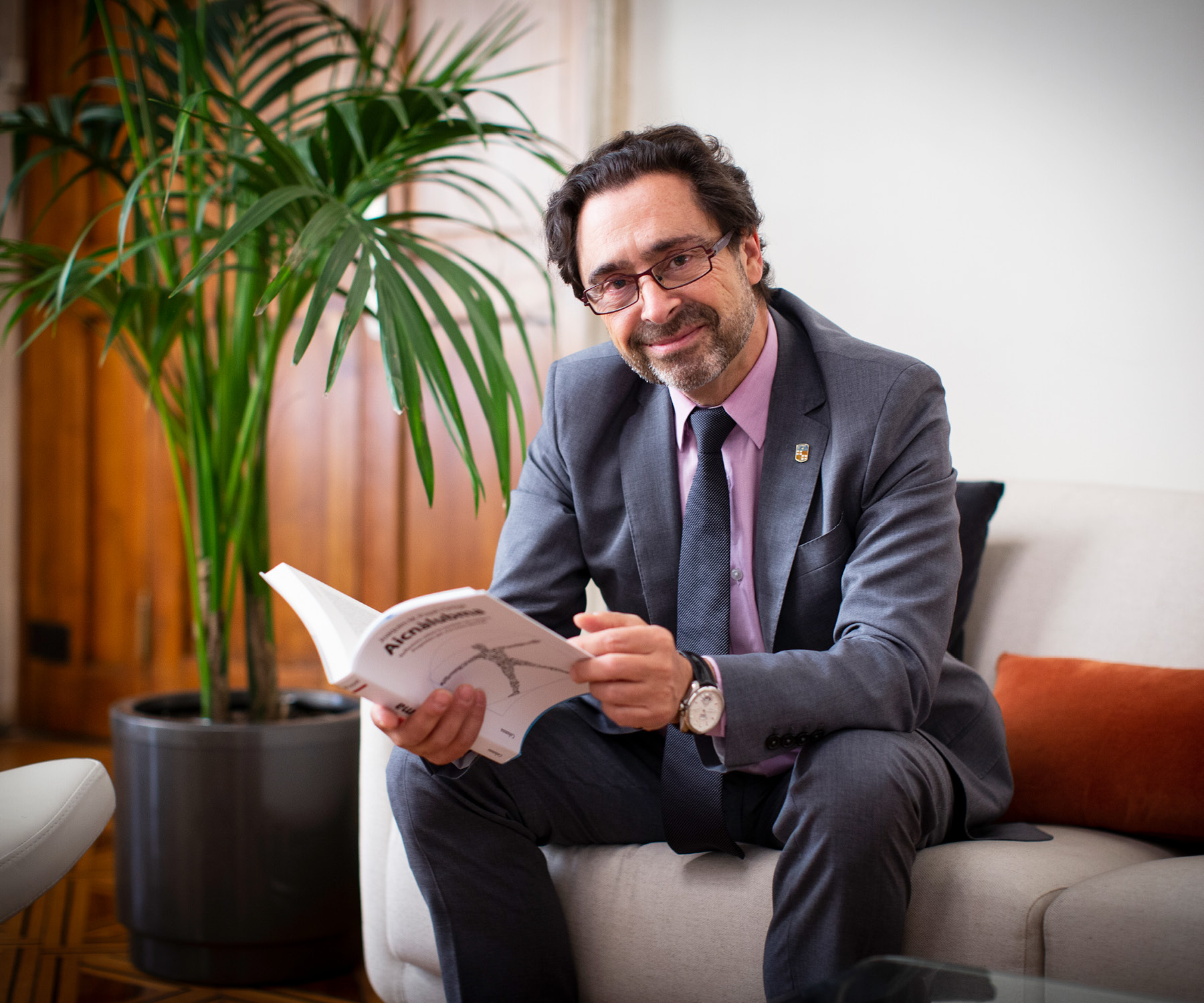
“It’s impossible to describe the history of Barcelona without the history of the university.”
For his part, Guàrdia stresses the need to confront the obstacles a repainted socio-political landscape is now bringing.
“Our most important challenge is how we transfer the power of science to society,” he says. “The European Union probably has the intention to move some priorities regarding funding from the universities [of LERU] and we need to be absolutely prepared to face this new challenge.
“It’s very important to follow the situation in China and the United States and to identify Europe as a star in this scenario.”
A big fish in a big pond
Closer to home, on Gran Via and the handsome, geometric blocks that make up Barcelona’s cosmopolitan yet resolutely middle-class Eixample district, the university’s position as a hero is already entrenched and not just because it stood up to Franco.
Every euro invested in the institution has a direct economic benefit of four euros (its research budget stands at US$222 million), and the University of Barcelona is the fifth biggest enterprise across all sectors in the Catalonia region, making Guàrdia a big fish in a big pond.
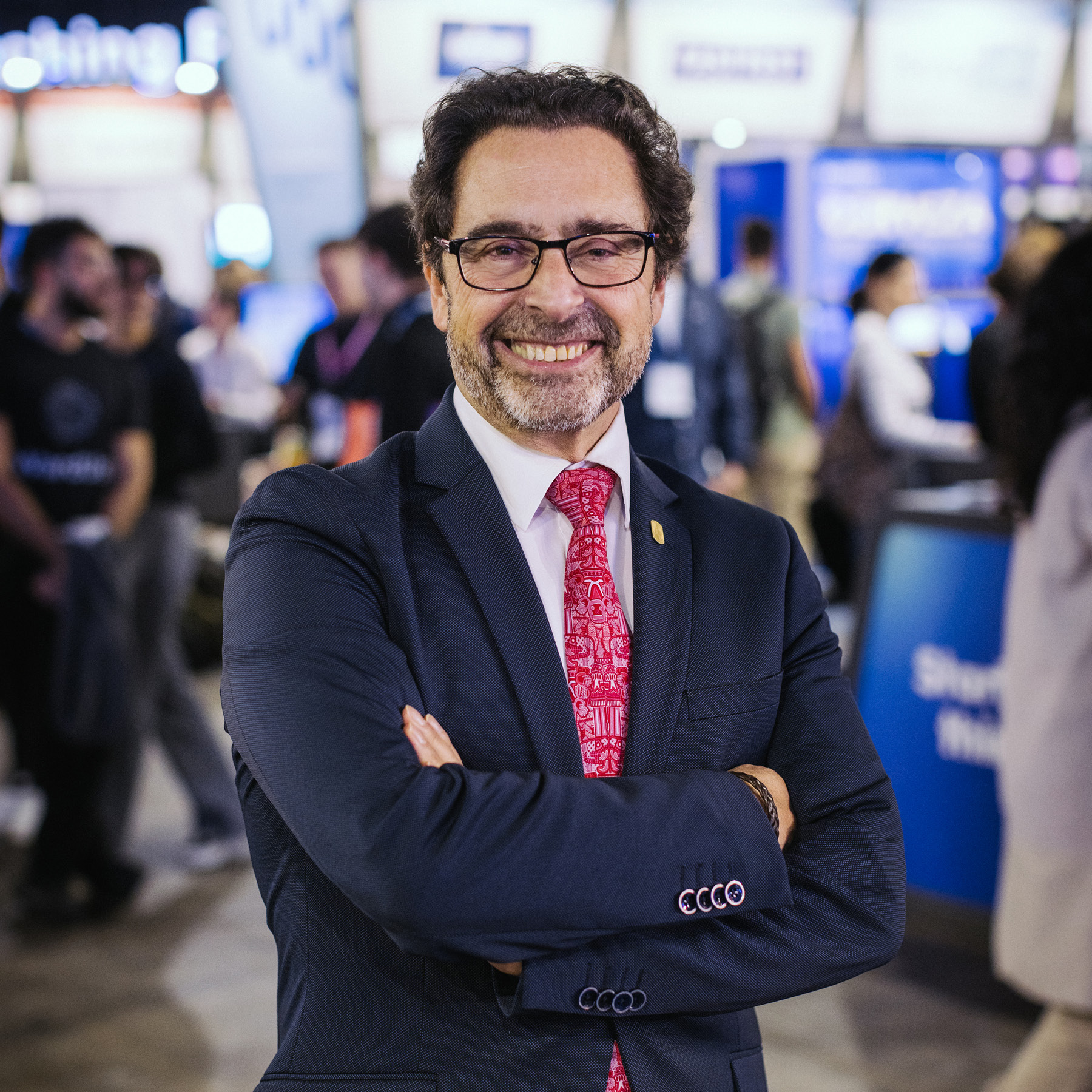
“In the last 50 years, the University of Barcelona has become the principal point of reference in defining political movements, social movements, economic movements.”
Obeying the mandatory requirement in Spain that all degrees are attached to practical courses, the university maintains close ties with local commerce, feeding around 4,000 regional businesses and organizations with internships – relationships that Guàrdia says give birth to between 20 and 25 new student-driven enterprises each year at Barcelona Science Park, a scion of the main university located a few minutes’ walk from the famed Camp Nou football stadium.
With 91 percent of attendees finding full-time jobs within three years of graduating, the university remains a genuine economic powerhouse, to some degree mirroring the way Catalonia itself is a main driver of the wider Spanish economy.
And unsurprisingly, considering the city’s seemingly never-ending list of cultural draws – world-class museums and art galleries, a buzzing gastronomic scene, electric nightlife – the university is a powerful magnet for overseas students; Guàrdia says that 28 percent of the 60,000 undergraduates are from overseas.
Still, the Rector admits the university is behind the curve in some aspects of its commercial development: “Working with private companies is a recent perspective in Spanish universities,” Guàrdia says.
“We do not have many connections. But in the last five years, we’ve grown up with speed and, for instance, we are now working with biotechnology enterprises, lawyers and builders. Every year we move US$5.6 million into specific projects, but it’s still a little far from our traditions.”
Interestingly, information about the university’s major corporate partners is generally not publicly disclosed, though Guàrdia does nod to a budding alliance with professional training experts Planeta Fomación y Universidades, tasked with creating spaces for reflection on university life and fostering training programs in this field.
New foundations
The university’s non-corporate outreach, however, remains broad, and Guàrdia is not averse to calling upon global friends to help solve a problem. Anyone who’s visited Barcelona in the past few years will have clocked how some of the city’s resplendent fountains – notably at tourist hubs Plaça d’Espanya and Plaça Reial – have run dry, the result of four years of drought conditions in the region.
The dire situation prompted Guàrdia to hook up with research institutes in Africa and South America to address the general issue of water shortages. As such, the University of Barcelona is walking the walk on the issue, recycling more than 20 percent of its water.
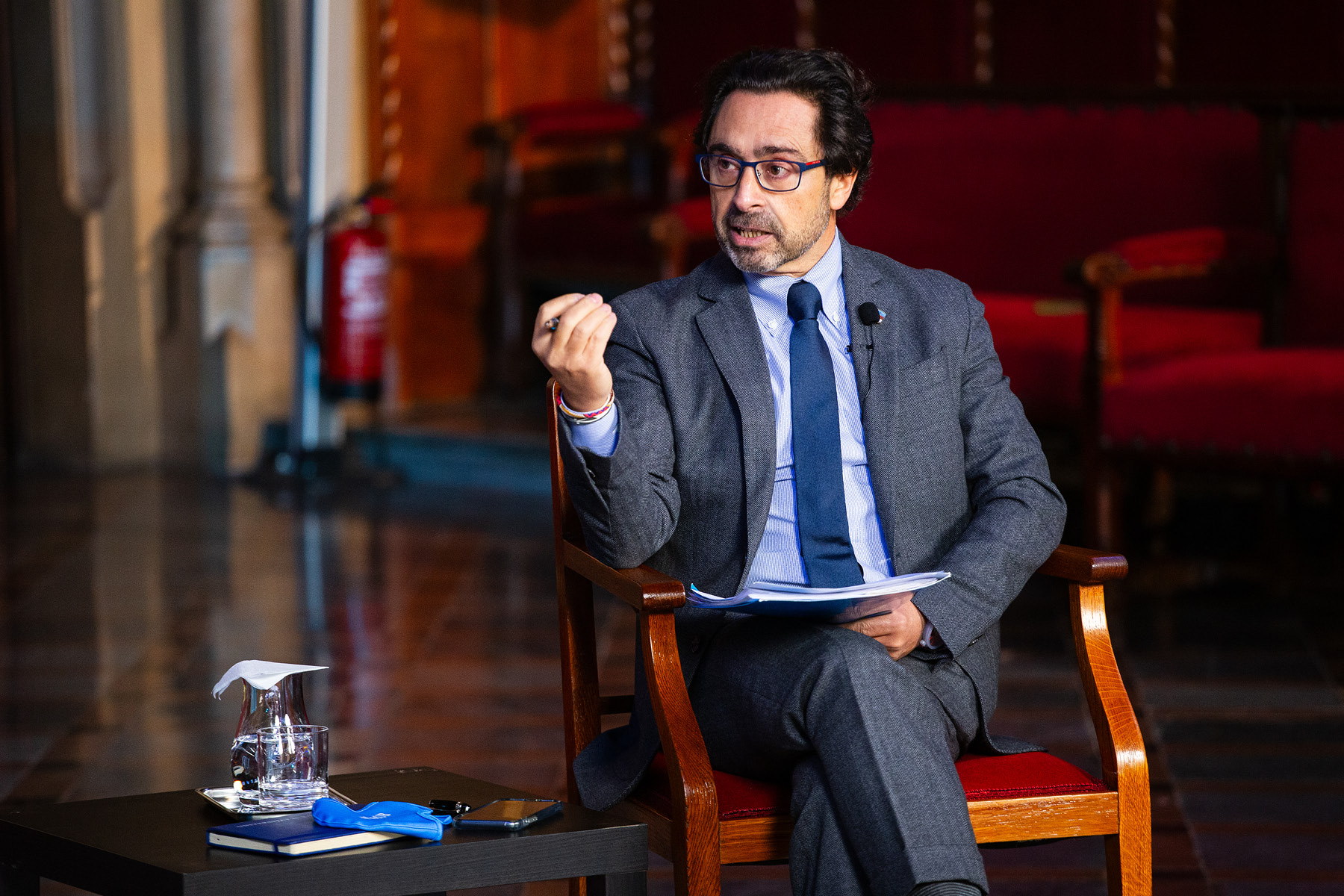
“Our most important challenge is how we transfer the power of science to society.”
As it heads toward its next landmark of six centuries, Guàrdia’s focus is to build upon the university’s stellar scientific and research foundations, particularly in the fields of technology and AI, across the six dispersed campuses and affiliates such as Hospital Clínic de Barcelona, recently boosted by the announcement of a relocation to a 300,000 square-meter site in the city center, due to be completed by 2035.
“It is a very important project for my country, and obviously my university,” Guàrdia says.
And you just know the architecture will be heart-melting.

